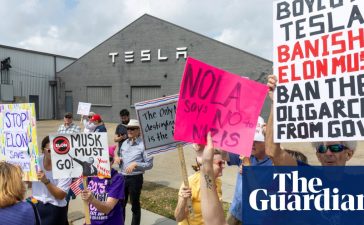Treasury Secretary
Janet Yellen
announced Sunday evening that Silicon Valley Bank’s uninsured depositors would gain access to their deposits on Monday. The Federal Deposit Insurance Corp. insures only deposits up to $250,000. The bailout creates incentives for risky behavior, teaching large depositors that they can throw money at risky banks without diversifying or conducting diligence. SVB long lobbied for looser risk limits by arguing that its failure wouldn’t create systemic risk and thus didn’t merit special intervention by the U.S. government. Yet on Sunday, Treasury deemed SVB “systemically important.”
To the extent that failing to make SVB’s uninsured depositors whole would have heightened the risk of a run on other banks, the Federal Reserve should have played its role as lender of last resort. Another option would have been to increase the FDIC coverage limit to a level that would avert a run, shoring up public confidence in other U.S. banks without showing favoritism toward SVB.
SVB’s situation is different from that of most U.S. banks. Only 11% of its deposits were insured. While the operating accounts of small businesses often exceed the FDIC limit, large banks usually sweep the excess into cash-management programs that buy Treasury bills and other securities. As the nation’s 16th-largest bank, SVB simply chose not to do so. For some reason
Roku,
the publicly traded maker of streaming devices, had a $487 million balance with the bank.
SVB also had a concentrated client base of tech startups whose needs for capital were highly sensitive to rising interest rates. Yet SVB itself had the highest concentration of any major bank in mortgage-backed securities, also especially sensitive to that risk factor. This is an egregious oversight specific to SVB. Its investment portfolio was 57% of total assets, more than twice its peer average of 24%.
Regulations require banks to hold high-quality liquid assets, and these can be categorized as available for sale (AFS) or held to maturity (HTM). With AFS investments, unrealized gains and losses don’t hit a bank’s profit-and-loss statement, but they do affect capital. Booking bonds in HTM prevents gains and losses from showing up at all. SVB booked $91 billion out of $120 billion in the most favorable HTM category, and only $26 billion as AFS. Why would the bank hold only $26 billion in AFS when it knew it had a concentrated, high-risk deposit base?
SVB intentionally decided not to hedge its interest-rate risk. This is shocking given that its $120 billion securities portfolio had a duration of 5.6 years, meaning a 200-basis-point increase in the five-year rate would equate to a $14 billion loss, roughly equal to SVB’s entire capital base. As recently as December 2021, SVB held a modest $10 billion of interest-rate swaps, so it knew the technique. CEO
Greg Becker
should have known better too. Until Friday he was a board member of the San Francisco Fed. He was also savvy enough to sell $3.6 million in stock days before his bank collapsed.
Either SVB was incompetent or this is a case of moral hazard, taking excessive risk and expecting political favors and bailouts. It turns ot SVB’s real “hedge” was to curry favor with the Biden administration. In 2022 SVB publicly committed $5 billion in “sustainable finance and carbon neutral operations to support a healthier planet.” SVB’s 2022 ESG report lists a litany of “cross-function working groups,” including a “Sustainable Finance Group” that monitors progress against SVB’s Climate Commitment and an “Operational Climate Group” that “monitors implementation of operational greenhouse gas reduction initiatives.” Rather than apply basic risk-management practices, SVB resorted to lobbying for looser risk limits. Taxpayers shouldn’t vindicate SVB’s political hubris.
On their own, SVB’s risk-management practices likely wouldn’t have tanked the bank. SVB appeared to have liquid assets to cover ordinary demand and was solvent as recently as midweek. But Mr. Becker botched public communication about the situation. He disclosed the firm’s attempts to raise capital only in cryptic securities-law filings, and he later committed the cardinal mistake of admonishing customers to “stay calm.”
Prominent venture capitalists are now arguing that even if SVB fails, startup founders who banked with SVB should be spared the fallout, but this is also wrong. Startup executives must do better in managing financial risks and diversifying across counterparties. Many tech founders were also financially rewarded for banking with SVB: The bank uniquely specialized in providing non-dilutive venture debt to risky early-stage companies. This allowed startup founders to preserve greater equity ownership in their companies. Taxpayers were never going to participate in that equity upside, so they shouldn’t be asked to foot the bill when downside risks materialize.
Some claim that SVB’s failure would bring down other worthy startups and leave the U.S. less competitive. That’s wrong too. Presumably, these startups’ business models are the same today as they were last week. That means investors could infuse fresh equity capital to make up for any balance-sheet losses. That involves painful equity dilution for founders and venture capitalists, but that’s no justification for a public bailout.
Venture capitalists and startup executives are pushing the narrative that there would be a bank run across the country if the government didn’t bail out SVB’s depositors. Perversely, this makes a run more likely, but most banks aren’t SVB. They hold conservative assets and have stronger capital positions. Their deposits are diversified and they likely don’t abuse HTM/AFS accounting. They hedge their interest-rate risk. They can also raise their deposit rates to limit outflows. The FDIC can help bolster public confidence by clearly communicating these facts to the public.
Silicon Valley entrepreneurs want to move fast and break things, but we shouldn’t let them break public trust as a long-shot maneuver for a special bailout. That isn’t how capitalism works.
Mr. Ramaswamy, a candidate for the 2024 Republican presidential nomination, is a co-founder of Strive Asset Management.
This article has been updated to account for Sunday evening’s events.
Copyright ©2022 Dow Jones & Company, Inc. All Rights Reserved. 87990cbe856818d5eddac44c7b1cdeb8












